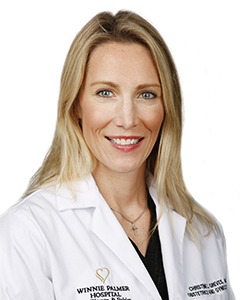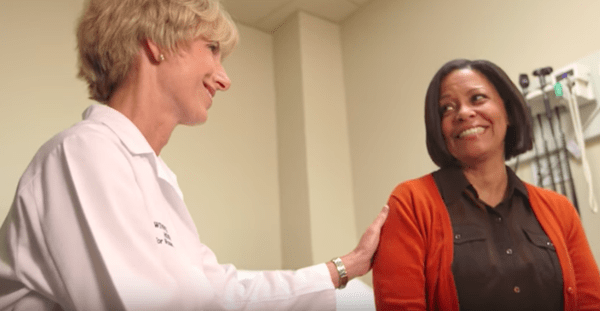Top OB-GYN Questions for Every Age
As you go through different stages in life, you’ll most likely have new questions about your body. Whether you’re a teenager or mature adult, changes in your lifestyle, relationships or health can make you wonder about the very body you thought you knew so well.
And let’s face it, sometimes it’s a little intimidating to ask a doctor questions that are personal in nature, but I encourage you to go for it. Like me, your OB-GYN or family practitioner has your best health in mind, and we don’t embarrass easily!
I’ve rounded up some of the most common questions my patients ask, based on their age, in hopes these answers may help you too.
Most common questions from teenagers (and their moms):
- When do I need to start getting a Pap exam? A Pap exam or test, also called a Pap smear, checks for cervical cancer, and is often done during a pelvic exam. Most women do not need to start having a Pap exam until they are 21. However, if you are having other problems or questions about your body, such as painful periods, you should see your doctor sooner.
- What’s the best birth control option? That depends on the individual. If you have a history of deep vein thrombosis, migraines with auras or high blood pressure, I may not recommend certain hormones. Will you remember to take a pill every day? If not, perhaps you should consider a longer-term approach like Depo-Provera or Nexplanon or intrauterine device. However, sometimes these can lead to irregular periods. Most forms of birth control have pluses and minuses—but if you and your OBGYN look at your individual health and lifestyle, you can determine the best option for you.
- What should I do about a painful period? You don’t have to accept being sidelined each month because of a painful period. Get ahead of the pain by taking an anti-inflammatory if not contraindicated, such as ibuprofen, two days before your period starts, and continuing it during your period. If that doesn’t help, talk with your doctor. If there are no contraindications, hormonal contraceptives may make your periods lighter, less painful and more predictable.
Most common questions from young adults:
- I had unprotected sex with someone whose sexual history I don’t know. What do I do now? If you’re concerned about being exposed to a sexually transmitted disease, your doctor can screen you for gonorrhea, chlamydia , and trichomoniasis, and test for HIV, hepatitis C and syphilis. Your doctor will repeat the test for HIV, hepatitis C and syphilis in six months because there is also an incubation period during which the disease may not be detected. Sometimes young women are hesitant to come in for testing, but I think it’s a great move to stay in charge of your health.
- What should I do to prepare for pregnancy? If you have any medical problems, the first step is getting cleared by your doctor to be sure you’re healthy enough for pregnancy. If there are no medical issues, start by keeping track of your menstrual cycle. At least three months before you begin trying to get pregnant, start taking prenatal vitamins so your body has the reserves it needs before pregnancy.
- When should I stop taking the pill so I can get pregnant? This answer depends on what your menstrual cycle was like before you started taking the pill. For example, if you had regular periods, you might get pregnant as soon as you stop taking the pill. If you want to learn what your cycle is, you could stop using the pill and use a condom for one to two months and keep track.

Most common questions from pregnant women:
- Can I exercise while pregnant? Yes, unless your doctor has recommended that you don’t, based on your health. Otherwise, as long as you don’t get short of breath—which can limit the baby’s oxygen—exercise is great.
- Is sex during pregnancy safe? Usually yes, but if your pregnancy is high risk, if you have had premature labor, cervical polyps, placenta previa or other conditions, your physician may recommend you abstain from sex. Discuss this with your doctor with each pregnancy.
- What can I do about morning sickness? Especially during those first few months of pregnancy (but sometimes beyond), you may feel nauseous, even to the point of vomiting. Try eating foods that are easy for your stomach to tolerate, like those on the BRAT diet (bananas, rice, applesauce and toast). Hydration is also important, so drink water and other non-alcoholic, decaffeinated beverages. Some people find that ginger products can help. Additionally, I recommend taking vitamin B6 at 25mg, three times a day initially, and if that doesn’t work, discuss further with your doctor. Those combined in the evening can help. If you aren’t getting relief, talk with your doctor to see if you should try a prescription medicine.
Most common questions from older women:
- When should I start getting mammograms? Unless there is a personal or family history that indicates otherwise, women should start getting mammograms at 40.
- What should I do about low sex drive? Low sex drive can happen at any age, but more often occurs with older women. I tell people that the number one sex organ for women is the brain, and if they’re not feeling that emotional charge, it can translate into a lack of a physical one. Consider how relationships, life stressors and medications can affect your sex drive, and how those factors can change. Of course, if you feel the decreased desire is due to medicine or your health, talk with your doctor to find out what options may exist.
- Intercourse is painful. What can be done? Older women who are menopausal have less of the hormone estrogen, which results in a lack of lubrication. Friction during sex can be painful but can be relieved by using an artificial lubricant. If that doesn’t help, you should talk with your doctor to find and resolve the problem.
If you have any concerns, do talk with your doctor. Taking responsibility for your body is the best way to stay healthy.
Are you interested in learning more about our network of women's health physicians?
At Winnie Palmer Hospital for Women & Babies, the physicians recognize that each woman has unique healthcare needs. Our team of highly skilled professionals — with advanced training and specialization in women's healthcare — is here to address your individual needs and concerns. From well-woman care to obstetrics to minimally invasive gynecologic surgery, we are here to provide the caring and expert care you deserve.
Learn more now







